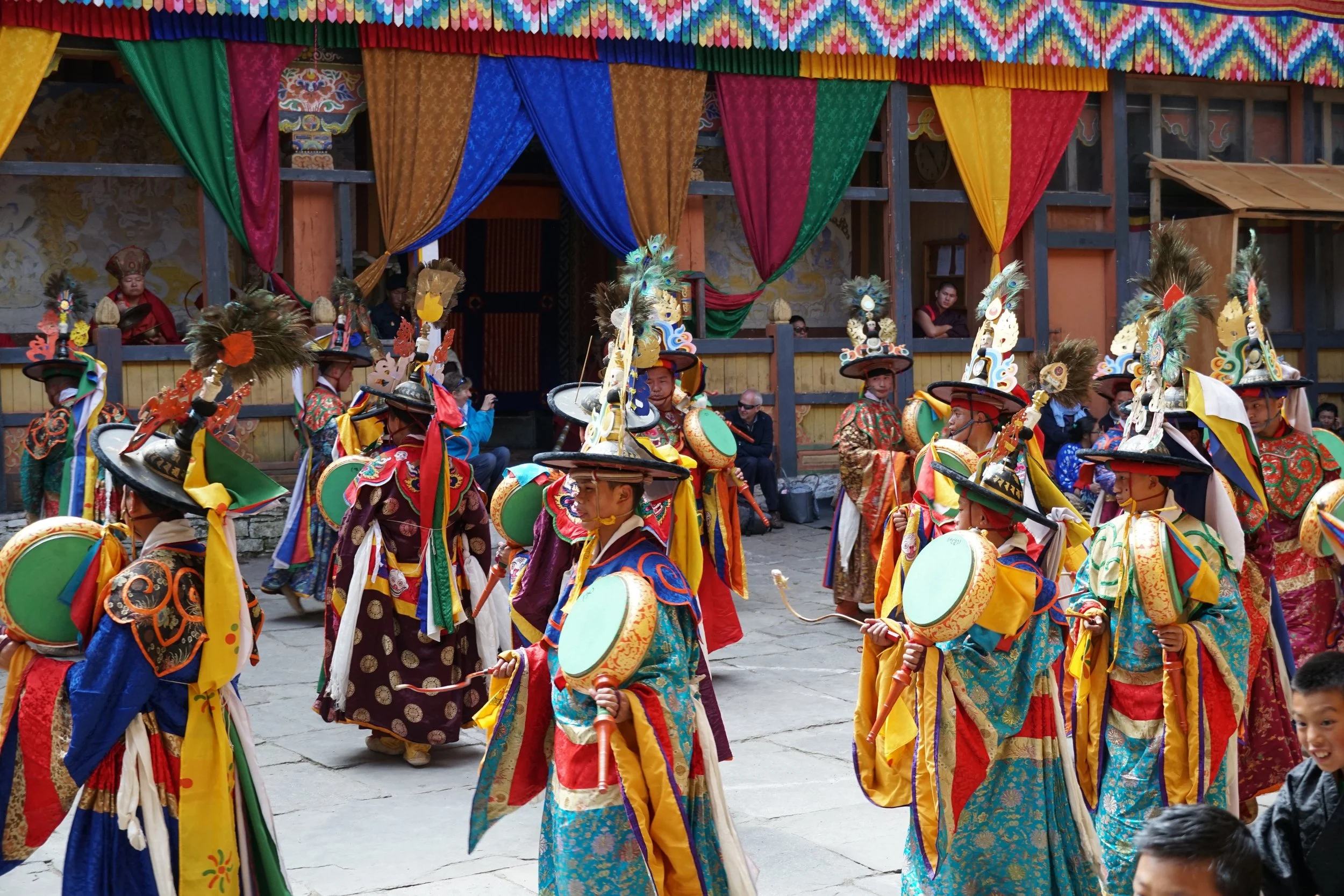One of the most unique and fascinating places in the world, there simply is no other destination like Bhutan. Blending extraordinary natural beauty, rich cultural heritage and plenty of surprising quirks, Bhutan is rightfully placed at the top of many keen travellers’ bucket lists.
To maintain a low volume, sustainable model of tourism, the Bhutanese government charges a daily fee to tourists, making Bhutan appear to be one of the pricier Asian destinations. But did you know that for 2023 and beyond, travel to this Himalayan kingdom just got a whole lot less expensive?
Often referred to as the “Land of the Thunder Dragon”, Bhutan’s cultural heritage is deeply rooted in Buddhism. Monasteries, dzongs (fortified monasteries) and chortens (memorial stupas) are scattered all over the country, as well as vibrant festivals that take place at these sites.
Jakar festival, Bumthang, Central Bhutan is a wonderful opportunity to experience Bhutan’s cullture.
Thanks to significant efforts of the government, the Bhutanese Royal Family and the people of Bhutan, this cultural and religious heritage has been magnificently preserved and upheld in day-to-day life.
One of the more colourful characters in Bhutan’s history is Lama Drukpa Kunley, a Tibetan monk known as “The Divine Madman” due to his unorthodox ways of teaching and deviance from social conventions. Phallic symbols, most notably flying ones painted on the walls of houses are symbols of luck derived from Lama Drukpa Kunley’s teaching. Although startling at first, the prevalence of these phalluses adds to Bhutan’s endearing, if not humorous, charm. It is quirks like this that showcase Bhutan’s character and uniqueness.
Bhutanese people consider the phallus a symbol of fertility, offering protection from evil and bringing good fortune. Phallic symbols adorn houses all over Bhutan.
Souvenirs with a difference!
Bhutan has an innovative and unique approach to social development and environmental conservation. Famously, Bhutan holds its Gross National Happiness (GNH) over its GDP. GNH is a holistic model of development that focusses on the well-being of people as well as their harmony with nature. GNH has become a guiding philosophy for the Bhutanese government since 2008, when it was enacted into the Constitution of Bhutan. This prioritisation of national happiness over economic margins truly sets Bhutan apart internationally and increases its appeal as a fascinating location to visit.
Gross National Happiness is more important than GDP in Bhutan.
The warm hospitality in Bhutan is truly remarkable.
Bhutan also has an admirable approach to environmental protection. The government has pledged to remain a carbon neutral country, and is actually currently carbon negative as it emits around two million tonnes of carbon whilst absorbing roughly seven million. This is aided by the fact that 71% of Bhutan is covered in forest, as the constitution stipulates that national forest coverage must be at a minimum of 60%.
Bhutanese forests are abundant with mosses and lichens.
Walk or trek in Bhutan’s pristine natural environment.
Therefore, Bhutan maintains a level of magnificent natural beauty that can be enjoyed by visitors. The dense forests and clean air make the perfect surroundings for walking and trekking, or even just to enjoy when driving through the country.
Mount Jichu Drake
For more information contact: info@beyondtheclouds.org.nz (www.beyondtheclouds.org.nz)












